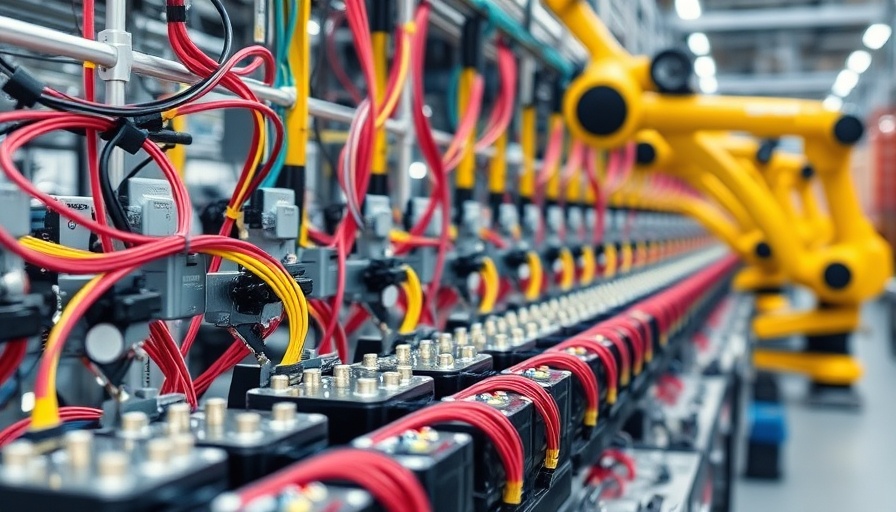
The Future of Electric Vehicles: A Shift Towards Sodium-Ion Batteries
The electric vehicle (EV) industry is on the cusp of a transformative breakthrough as researchers unveil the potential of sodium-ion batteries. With the ever-increasing need for sustainable energy solutions, these innovative batteries promise to challenge the lithium-ion status quo by addressing key environmental and practical issues associated with current technologies.
Why Sodium-Ion Batteries Matter
Sodium-ion batteries offer several advantages over their lithium counterparts. Lithium, while effective, is burdened by a supply chain fraught with environmental and social concerns, especially regarding its extraction processes. In contrast, sodium is abundant and widely available, making it a more sustainable option for mass production.
Innovative Chemical Processes Reshaping Battery Performance
Research conducted at the Helmholtz Institute Berlin has led to groundbreaking findings in sodium-ion technology. By employing a co-intercalation method that allows sodium ions and solvent molecules to move concurrently through battery electrodes, scientists have significantly improved the performance and stability of these batteries. This advancement not only enhances power density but also fosters faster charging capabilities, making sodium-ion batteries a viable alternative for modern EV applications.
Challenges and Solutions in Sodium-Ion Technology
While the benefits of sodium-ion batteries are evident, challenges remain. Traditional intercalation processes can lead to premature battery degradation; however, the novel co-intercalation technique pioneered by Dr. Yanan Sun and her team provides a promising solution. The research indicates that specific materials may allow for fast reaction times without sacrificing battery life, thus reshaping how we perceive battery longevity.
What This Means for Electric Vehicles in 2024 and Beyond
The advent of sodium-ion batteries could revolutionize the EV landscape as we approach 2024. Consumers looking for the best cars next year could see more eco-friendly options with enhanced reliability ratings and performance analyses that promise greater efficiency. Manufacturers might adopt sodium-ion technologies in their new electric vehicle reviews, allowing for a more diversified battery portfolio.
Addressing Common Misconceptions About Battery Technology
Despite the enthusiasm surrounding sodium-ion technology, some misconceptions persist. Many consumers may question its reliability compared to more established lithium-ion batteries. However, ongoing advancements in sodium-ion chemistry suggest that they could surpass lithium in specific performance metrics, notably in charging time and overall battery longevity.
Practical Insights: What to Expect
In the coming years, car buyers should consider how the evolution of battery technology will influence their choices. The shift from lithium to sodium-ion batteries may result in lower ownership costs due to reduced material sourcing expenses and environmental impacts. Understanding these new technologies will be essential for consumers looking to leverage car comparison tools effectively.
Conclusion: Embracing Change in Automotive Power Sources
As the automotive industry continues to innovate, the rise of sodium-ion batteries represents a significant milestone in the shift towards cleaner, more efficient energy sources. For consumers and manufacturers alike, embracing this change could lead to a more sustainable future in transportation. By staying informed about the latest developments, you can better navigate the evolving market landscape as we look toward 2024 and beyond.
 Add Row
Add Row  Add
Add 




Write A Comment